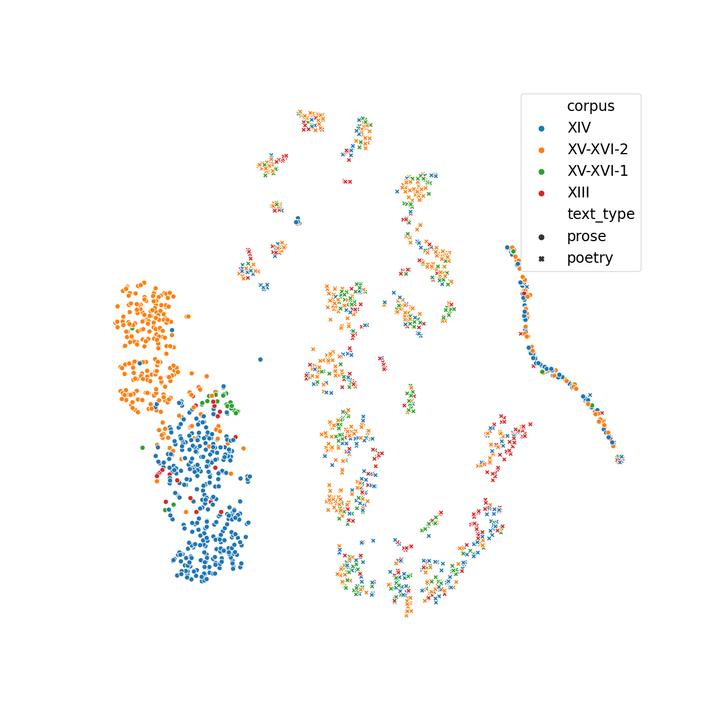
Abstract
Italian is a Romance language that has its roots in Vulgar Latin. The birth of the modern Italian started in Tuscany around the 14th century, and it is mainly attributed to the works of Dante Alighieri, Francesco Petrarca and Giovanni Boccaccio, who are among the most acclaimed authors of the medieval age in Tuscany. However, Italy has been characterized by a high variety of dialects, which are often loosely related to each other, due to the past fragmentation of the territory. Italian has absorbed influences from many of these dialects, as also from other languages due to dominion of portions of the country by other nations, such as Spain and France. In this work we present Vulgaris, a project aimed at studying a corpus of Italian textual resources from authors of different regions, ranging in a time period between 1200 and 1600. Each composition is associated to its author, and authors are also grouped in families, i.e. sharing similar stylistic/chronological characteristics. Hence, the dataset is not only a valuable resource for studying the diachronic evolution of Italian and the differences between its dialects, but it is also useful to investigate stylistic aspects between single authors. We provide a detailed statistical analysis of the data, and a corpus-driven study in dialectology and diachronic varieties.